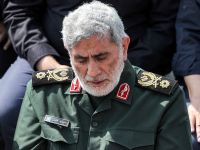Turkey's governing coalition will be seeking to defeat rebel MPs and secure an outright victory for their opposition-backed candidate in Thursday's presidential elections in a bid to preserve precarious political stability in the country.
In an unprecedented show of unity, Turkish Prime Minister Bulent Ecevit, his two coalition partners and the two leaders of the opposition have nominated Constitutional Court head Ahmet Necdet Sezer as the parties' consensus candidate.
Sezer, a political novice, will be facing 10 other candidates -- all of them MPs -- in Thursday's ballot scheduled for 1200 GMT after two hopefuls dropped out of the race on Wednesday.
But the Turkish press remained skeptical on Thursday that Sezer would be able to clinch victory in the first round because of probable protest votes by MPs angered by their leaders reaching a consensus without consulting them first.
Some newspapers reported that independent-minded deputies were trying to reach a compromise among themselves to back one of the other 10 candidates to provide a strong opponent from within parliament against Sezer, an independent.
Under Turkish law, presidential candidates must garner at least 367 votes in the 550-member house in the first or second ballot in order to win election.
If no candidate manages to muster the required support, the two who get the most votes in the second round qualify for a third round run-off on May 1 and eventually a fourth round on May 9. A majority of 267 votes is required to win election in those rounds.
In a television interview on Wednesday, Ecevit called on MPs to vote in favor of the top judge, implying that a drawn-out search for the country's next president would damage much-needed stability.
"I hope that all other candidates from within parliament and those who think of voting for those candidates will respect the consensus reached between the leaders of the five political parties," he told Turkish state television TRT.
"My wish is that Sezer is elected in the first round," he said. "Of course this is not a must, but if it (the election) drags on, it might lead to a series of unpleasant incidents."
Ecevit has long feared that a divisive presidential race could damage his three-party coalition government, the most stable Turkey has had since 1995, since under Turkish law parliament is automatically dissolved if it fails to elect a president in four ballots.
Sezer was quoted by Reuters Wednesday as calling for democratic reforms and the right to free expression, proposals that have left the Islamic party applauding but could anger the powerful military.
He called for reforms to the constitution drawn up during the 1980-1983 military rule, saying it restricts basic rights and freedoms.
He also questioned the military's annual purge of officers suspected of links with Islamic groups or political parties. The decisions are made behind closed doors and the sacked officers have no right of appeal.
The European Union, which Turkey hopes to join, is likely to be pleased with Sezer's nomination, which came about after intense bargaining between Turkey's main parties. So is the far-right Nationalist Action Party, a key member of the governing coalition, which has strong support among the religious – (Agencies)
© 2000 Al Bawaba (www.albawaba.com)







